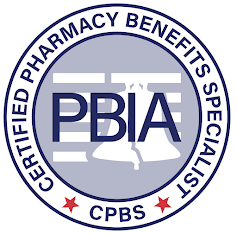AI-Driven Solutions Promote Medication Adherence and other notes from around the interweb:
- AI-Driven Solutions Promote Medication Adherence. A study conducted in 2019 showed that approximately 50% of the 187 million patients in the US health care system did not follow their medication plan as prescribed. This means they failed to adhere to the drug regimen or to take the medication for the entire prescribed duration. Adherence rates for most medications used to treat chronic conditions, such as diabetes and hypertension, usually fall in the range of 50% to 60%, even with patients who have good insurance and drug benefits. This rate of adherence leads to an estimated 125,000 avoidable deaths each year and $100 billion annually in preventable health care costs.
- Mark Cuban: Five Ways that Big PBMs Hurt U.S. Healthcare–And How We Can Fix It. #1 Zero transparency. The number one rule when contracting with PBMs is that you don’t talk about the PBMs and their contracts. They prevent everyone–providers, manufacturers, employers, and non-affiliated pharmacies—from making public or discussing their pricing terms or any aspect of their contracts. If you do, they’re happy to sue you.
- Amid increased federal scrutiny, PBMs pivot strategy to further squeeze independent pharmacies. Pharmacy benefits managers (PBMs) are employing new strategies to squeeze independent pharmacies, even as the industry faces pressure from the federal government, which is looking for ways to curb healthcare’s middlemen and preserve competition in medicine distribution. Independent pharmacies have complained for years about unfair tactics used by PBMs to force them out of business, including underpaying for filled prescriptions and reimbursement clawbacks. It has gotten the attention of Congress, and the Federal Trade Commission (FTC) is in the middle of a probe with results due this year. Meanwhile, another tactic is starting to see an anecdotal increase: terminations.
- 5 ways to improve your PBM procurement process in 2024. Many self-funded plan sponsors struggle to manage the cost of pharmacy benefits and rely on non-transparent contract guarantees to hold PBMs accountable. Meanwhile, drug spending continues to compound at an astonishing rate in defiance of the savings promised during the procurement process. As a former pharmacy program director for a plan covering more than 16,000 lives, I can tell you that it is possible to stop the “games” PBMs play, control costs, and ensure that all contractual guarantees are met, especially in scenarios where a PBM won’t guarantee an all-in per member per month (PMPM) cost for the year. Understanding the problem is a part of the solution, but making meaningful changes to the way plan sponsors and brokers evaluate PBMs is where the real opportunity lies.
